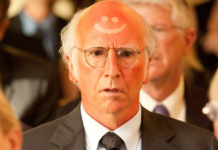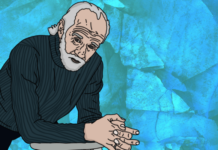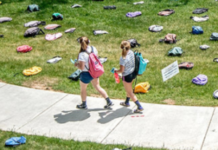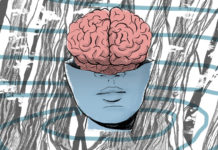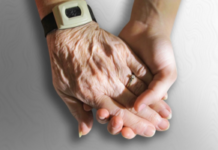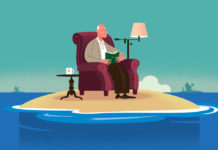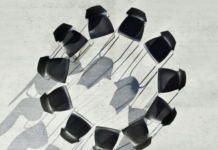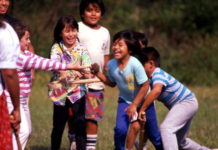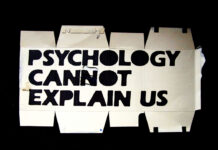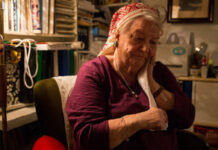Being Bullied by Age Eight Linked to Depression in Adulthood
There is a growing body of evidence suggesting that being exposed to bullying in childhood can contribute to mental health problems later in life. In a new study, published in JAMA Psychiatry, the researchers found that children who reported being bullied at age eight were significantly more likely to seek treatment for mental health problems by age twenty-nine.
Feel Bad About Feeling Bad? Embrace Negative Emotions Instead
From Big Think: According to new research, habitually accepting negative emotions rather than criticizing or suppressing them positively impacts our long-term psychological health.
"There is a lot more...
Stories from the Psych Ward: Why Drugs Aren’t the Cure
In this piece for Elephant Journal, one man tells his story of being locked up and forcibly drugged in the psych ward, and how he...
Berlin Manifesto for Humane Psychiatry Released
Changing the mental health and psychosocial support system in Germany requires public debate about the ways our society should help and support people in mental crisis and with chronic mental health problems. We believe the driving force behind all help and support should be humanitarianism and respect for inalienable human rights.
“The Post-Irene Mental Health System of Care”
-Hurricane Irene seems to have left some community-based approaches to psychiatric care in its wake.
Hopeless But Not Broken: From George Carlin to Protest Music
From CounterPunch: Although people are often pathologized and shamed for feeling hopeless, hopelessness is sometimes a natural reaction to an oppressive political climate. George Carlin...
Colleges Get Proactive in Addressing Depression on Campus
From The New York Times: The number of college students with mental health concerns is rapidly increasing, straining many universities' mental health and counseling centers. Colleges...
Suicidal Tendencies, Part III: So, When Do I Get to Call the Cops?
What if the key to saving someone is to admit you are powerless to save anyone at all? What would that beckon us to change? A few years ago, I spent a substantial amount of time talking with a man who entered my life because someone in the mental health system told him I might be the one who could save him (or at least, that’s how he heard it). His name was David.
Belief in a Favorable Future May Undermine that Future
People who are more likely to believe that others’ views will change to match their own over time are less likely to engage in actions to facilitate that change
“How People Learn to Become Resilient”
In the New Yorker, Maria Konnikova delves into the research on why some people are able to adapt and overcome adversity, trauma, and poverty...
Correcting Misconceptions of Trauma-informed Care with Survivor Perspectives
Trauma-informed approaches have the potential to promote recovery but must involve survivors and service-users to prevent the experience of retraumatization within psychiatric and mental health services.
Human Jobs in the Future Will Require Emotional Labor
From Aeon: As technological change reduces the demand for human jobs in scientific and cognitive fields such as software engineering, biotechnology, and advanced manufacturing, future...
How Loneliness Affects Our Health
From The New York Times: The potentially harmful impact of loneliness and isolation on our health and well-being have been well documented over the past...
The Club Where You Bare Your Soul to Strangers
From The Atlantic: A new movement called Authentic Relating is hosting events across the country where people participate in exercises and games to learn the...
“The Myth of the Ever-More-Fragile College Student”
“The point, overall, is that given the dizzying array of possible factors at work here, it’s much too pat a story to say that kids are getting more 'fragile' as a result of some cultural bugaboo,” Jesse Singal writes in response to the flurry of recent think pieces decrying the weakened resolve of today's college students.
Searching for Zen and Finding a Cow
If I had a clinical problem, why was something as ancient and simple as meditation helping me? And if normal positive human habits could be so profoundly useful, why the heck was the field marketing pills and “clinical” coping mechanisms to me instead? This frustration helped me jump ship from the medical mindset and hop into the world of humanity.
Belongingness Can Protect Against Impact of Trauma, Study Suggests
A new study explores feelings of belongingness as a protective factor for childhood trauma and adult mental health outcomes.
“Can Madness Save the World?”
Writing for CounterPunch, Paris Williams writes that when an individual is experiencing what has been termed “psychosis,” it is important to recognize that this may also be the manifestation of a breakdown in their larger social groups, the family, society, and even the species.
“Loneliness May Warp Our Genes, And Our Immune Systems”
NPR reports how loneliness can change our bodies and affect our physical and mental health. "There are things we can do to get out of a depressed or lonely state, but they're not easy," they report. "Part of the reason is because these negative psychological states develop some kind of molecular momentum."
The Paradox of White Americans’ Mental Health
Are White Americans’ poor mental health outcomes caused by Whiteness?
An Alternative Perspective on Psychotherapy: It is Not a ‘Cure’
Kev Harding argues against conceptualizations of therapy as a ‘cure’ to an ‘illness’ and instead offers alternative approaches.
“Programs Expand Schizophrenic Patients’ Role in Their Own Care”
Benedict Carey at the New York Times covers the push for new programs that emphasize supportive services, therapy, school and work assistance, and family education, rather than simply drug treatment.
The Effect of Psychiatric Diagnosis on Young People’s Sense of Self and Social Identity
A new review highlights the effects that psychiatric diagnosis has on children and adolescents’ social relationships and views of self.
How an Ancient Singing Tradition Helps People Cope With Trauma
From YES! Magazine: Lament singing, an ancient tradition once observed for spiritual purposes during funerals, weddings, and times of war, is now seeing a revival in...
10 Life Lessons I Learned as a Psychiatric Nurse and Patient
In this piece for Wake Up World, Cortland Pfeffer shares 10 life lessons he learned from his experience as a psychiatric patient, a recovering...


